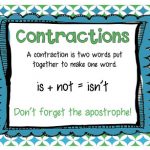Contents
Compound Words
The most common spelling quandary writers face is whether to write compounds as separate words, one word, or hyphenated words.
Open Compound Words
An open compound word is created in cases when the modifying adjective is used with its noun to create a new noun. This isn’t quite the same as a noun with a modifying adjective. We just use a space between the adjective and the noun, so sometimes it can be hard to identify as a compound; however, if the two words are commonly used together, it’s considered to be a compound word.
When adverbs ending in -ly combine with another word, the resulting compound is always spelled as two separate words.
Closed Compound Words
Closed compound words look like one word. At one point, these words weren’t used together, but they’re now accepted as a “real word” in the English language. Closed compound words are usually made up of only two words. Here are some closed compound examples.
The English language is always evolving, and when words become used more frequently, they are often eventually written as one word. When the Internet first began, for example, we talked about going on-line. Now that this is a daily experience for most of us, the spelling online has become commonly accepted.
Hyphenated Compound Words
There are a great many grammar rules regarding hyphens in compound words. One important rule of thumb to remember is that in most cases, a compound adjective is hyphenated if placed before the noun it modifies, but not if placed after the noun.
But…
This is just one of many rules concerning hyphens in compound words and it is often necessary to consult the dictionary to determine whether these terms should be hyphenated or not.














